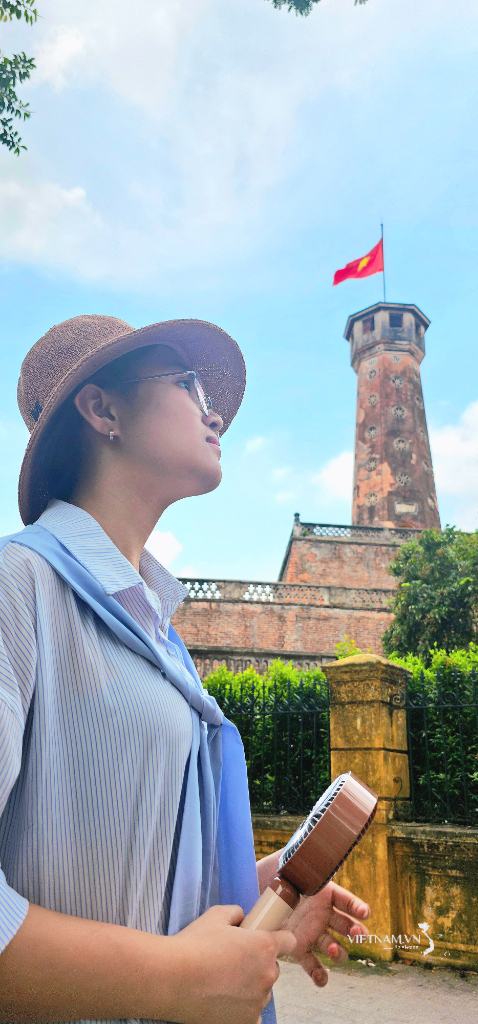People travel for many reasons such as to relax, explore new places... Not only that, traveling can also bring great benefits to brain health. So this Tet is also an opportunity for you to plan your trip!

Travel will activate the circuits of learning new things - Photo: Destination Holiday Tours
Travelling to warmer climates can help improve mental health, especially for people with seasonal affective disorder (SAD) – mood swings that can have a devastating impact on daily life.
How is travel good for the body and brain?
According to Brain HQ, physical activity is good for overall health, so getting out and moving is always a good thing.
But other aspects of Travel, such as creating new memories, socializing, engaging in new experiences, and simply having fun, can also benefit the brain.
“By planning a trip and joining a group tour, with itineraries and destinations to learn about new cultures, it can be a great workout for the brain,” says David A. Merrill, MD, a psychiatrist. elderly people and director of the Pacific Center for Brain Health at the Pacific Neurological Institute in California, said.
If you're flying, just walking through the airport terminals counts as exercise. A large resort can help you increase your step count while exploring .
Then there are your everyday activities, like strolling around a museum, visiting a historical site, or walking along the beach or nature trail.
According to a review published on Neurology Clinical Practice , exercise leads to improvements in cognition, processing speed and concentration, as well as executive abilities such as planning ahead, achieving goals and demonstrating self-control.
The movements you make help increase blood flow and keep your muscles active, says Dr. Merrill. “Traveling is an active activity that sends signals to the brain to keep it in good shape,” he says.
Traveling isn't just a great workout for the body, it's also a great workout for the brain. "Having scheduled activities really optimizes your time as a brain workout," says Dr. Merrill.
This can include anything from sightseeing, going to a museum, seeing a play or concert, or simply immersing yourself in another culture.
Many options to experience
And you don't have to go to faraway places to get these benefits, just be somewhere that will give you the opportunity to learn something new.
If you go camping, try setting up a tent or starting a fire without looking at the instructions.
Traveling to a new place can benefit your memory. Research shows that being in a new place can increase empathy, energy, focus, and attention, helping to build memories.
People often have stronger memories of a trip than of their everyday lives.
Meeting new people while traveling has a similar effect on the brain. Socializing and maintaining friendships can help prevent cognitive decline and reduce the risk of dementia.
So don't be afraid to strike up a conversation with people at the campsite next door, sitting near you on the tour bus, or waiting to be served at a crowded restaurant.
According to the Cleveland Clinic, there are some key symptoms in people with seasonal affective disorder (SAD) to note, including: sadness; anxiety; extreme fatigue and lack of energy; difficulty concentrating. Feeling irritable or easily agitated; loss of interest in daily activities, including withdrawing from social activities; sleep problems - often sleeping too much...
Therefore, it is advisable to increase exposure to natural light during the day, which helps regulate circadian rhythms and leads to better sleep at night. Go for a walk, play with your children, or do any other activity outdoors. Even on cold or cloudy days, outdoor light still works.
 Global tourism revives dramatically
Global tourism revives dramaticallySource: https://tuoitre.vn/tai-sao-di-du-lich-lai-tot-cho-suc-khoe-cua-chung-ta-20250127125234113.htm





![[Photo] Parade to celebrate the 50th anniversary of Laos' National Day](/_next/image?url=https%3A%2F%2Fvphoto.vietnam.vn%2Fthumb%2F1200x675%2Fvietnam%2Fresource%2FIMAGE%2F2025%2F12%2F02%2F1764691918289_ndo_br_0-jpg.webp&w=3840&q=75)

![[Photo] Worshiping the Tuyet Son statue - a nearly 400-year-old treasure at Keo Pagoda](/_next/image?url=https%3A%2F%2Fvphoto.vietnam.vn%2Fthumb%2F1200x675%2Fvietnam%2Fresource%2FIMAGE%2F2025%2F12%2F02%2F1764679323086_ndo_br_tempimageomw0hi-4884-jpg.webp&w=3840&q=75)






































![[Video] Protecting World Heritage from Extreme Climate Change](https://vphoto.vietnam.vn/thumb/402x226/vietnam/resource/IMAGE/2025/12/03/1764721929017_dung00-57-35-42982still012-jpg.webp)

































































Comment (0)